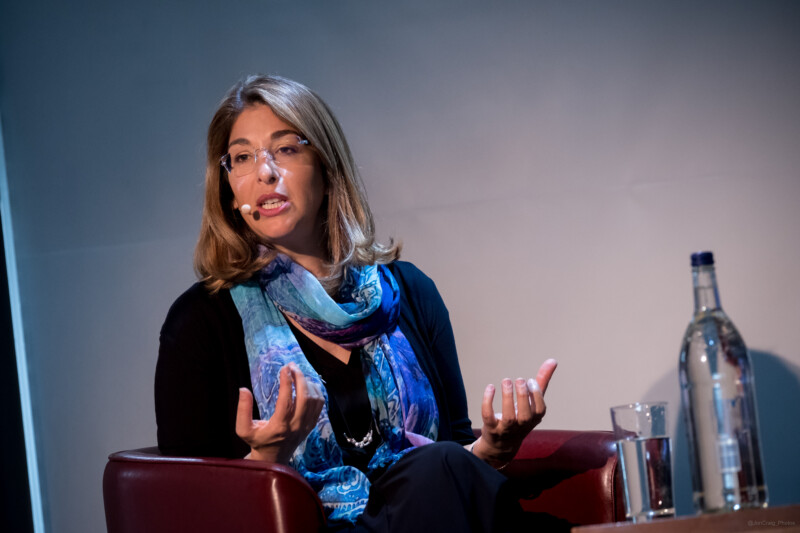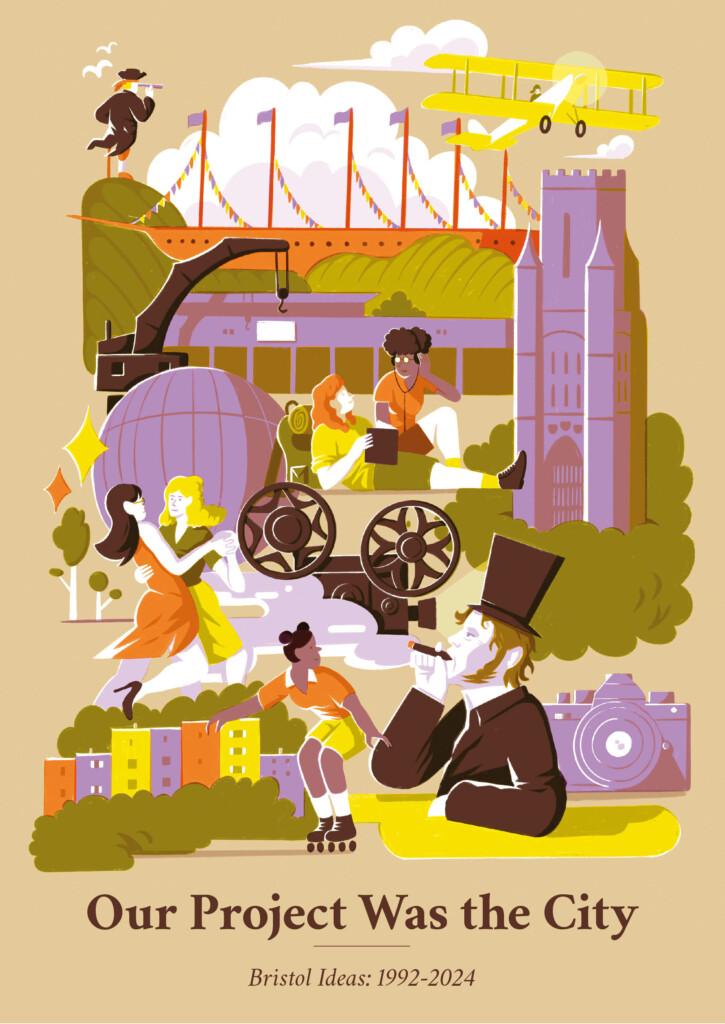Some Personal Reflections on Bristol Ideas Barry Taylor

Share this
Naomi Klein spoke at the festival in 2017 for the second time. (Jon Craig)
Bristol City Council was a member of Bristol Ideas from the start. The University of Bristol joined as a supporter in 2010. Barry Taylor, who led on corporate communications for them both over a total of 24 years, connected the two organisations and our work. Partnerships such as Bristol Ideas need officers like Taylor for ongoing advice, ideas and, frankly, smoothing the way. He writes about his work with us here.
I was two hours into my 14-year stint at Bristol City Council when a senior politician popped into my office to introduce himself. After the usual pleasantries, he announced with mystifying relish that Bristol was ‘the city where good ideas come to die’.
That was in 1986. Seven years later, when Andrew Kelly took the reins of the organisation that would become Bristol Ideas, a different cynic, this time a property developer, welcomed him with exactly the same words.
Thankfully, this old cliché about Bristol was on its last legs by the time Andrew arrived. A set of bold new ideas had gained traction. Perhaps chief among them was this: in order to reverse the decline that had set in during the 1980s and early 1990s, council and business leaders had to overcome their mutual suspicion, rise to Bristol’s big challenges together and work far more closely with other agencies and the community at large.
John Savage was the principal architect and advocate of this partnership approach. One of its early successes was the creation of Bristol Ideas: heady stuff for someone like me who had come to Bristol after working for 10 years on cultural events, projects and venues. Bristol Ideas opened up three enticing vistas: new activities for me to enjoy after a hard day’s spin-doctoring; the opportunity to present the city council as a key player in a novel venture that could benefit the whole of Bristol; and the emergence of a more creative, outward-looking and high profile city.
It is a tribute to Andrew’s drive and tenacity that none of these vistas proved illusory. If not for Bristol Ideas, I probably wouldn’t have experienced riveting talks by the likes of Steven Pinker, Naomi Klein and John Boorman, and I definitely wouldn’t have performed (for 90 seconds, badly) on Watershed’s stage with an exPython; it would have been even harder to dissuade the Daily Mail from depicting the council leadership as a cabal of introspective, anti-progress lefties; and Bristol would have been a less open-minded, exhilarating and admired place.
When I moved from the bottom of Park Street (City Hall) to the top (the University of Bristol), Andrew and his miniscule team had been operating for seven years and was widely respected. The four-year process of bidding to become European Capital of Culture was under way and would see hundreds of organisations and thousands of individuals coalesce around a single vision. The bid’s ultimate failure was depressing but almost beside the point.
I maintained a strong working relationship with Andrew in my new job. Apart from being a personal pleasure, it continued to bring professional benefits. My responsibilities at the university included PR, events and public engagement, and a link with Bristol Ideas was handy for all three.
For instance, I was project director of the university’s year-long centenary celebrations in 2009. Imagine what a boon it was to have Andrew’s expert advice and practical support on everything from organising 19 big-name public lectures to producing a heavily illustrated, 300-page hardback with 70 eminent contributors.
I nominated John Savage for an honorary degree in 2005 and Andrew Kelly for one in 2008. It was a way for the University of Bristol to acknowledge their achievements and celebrate the city’s evolution as a place where people are adept at finding common ground and making headway through joint action; where good ideas are welcomed in, or generated afresh through vigorous discussion; and where such ideas don’t die but fly.
Barry Taylor was head of corporate communications at Bristol City Council from 1986 to 2000. He then became communications and marketing director at the University of Bristol. Ten years later he went into business as a freelance writer and editor, working mostly for companies and universities.

This essay is taken from Our Project Was the City: Bristol Ideas 1992-2024, published May 2024.